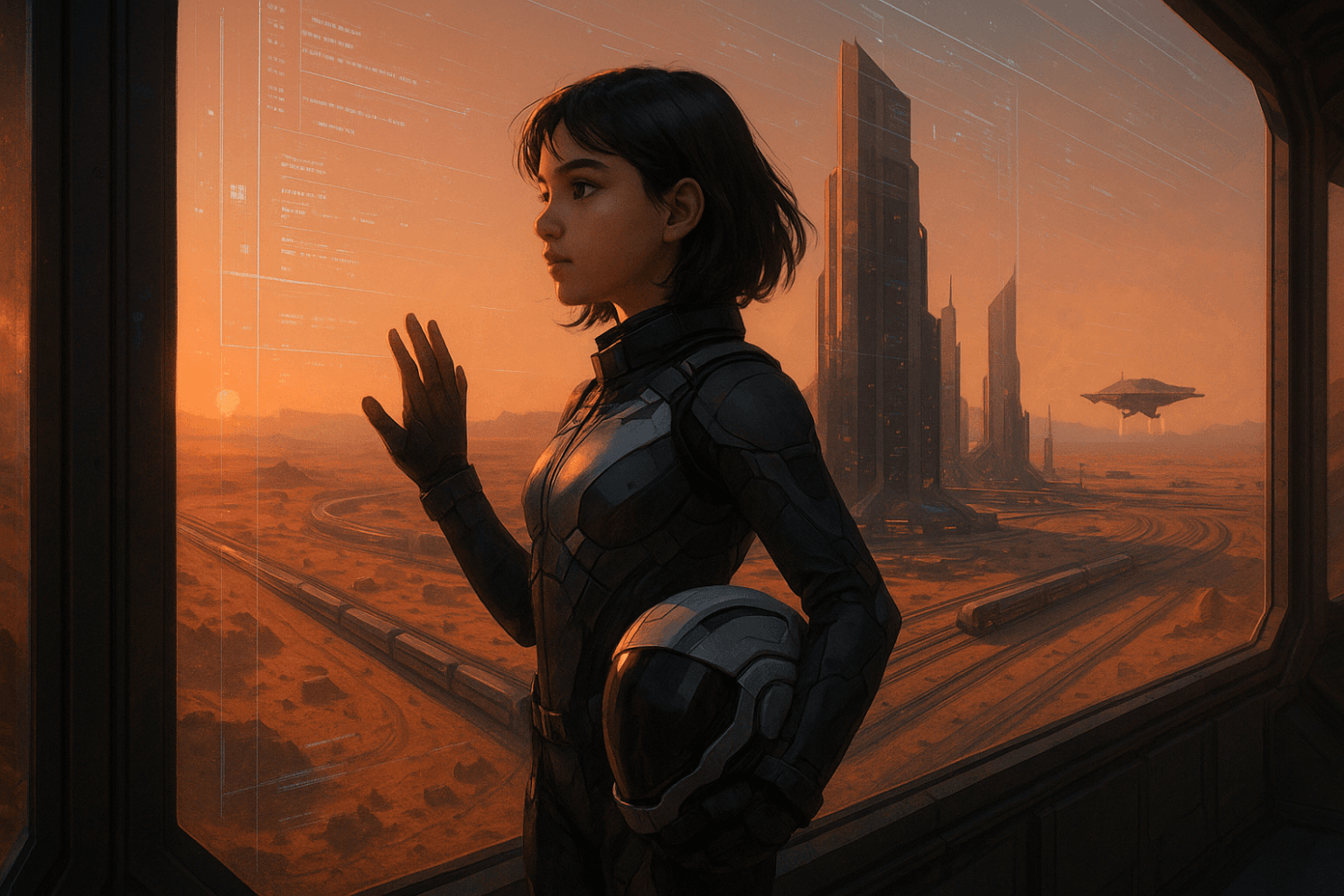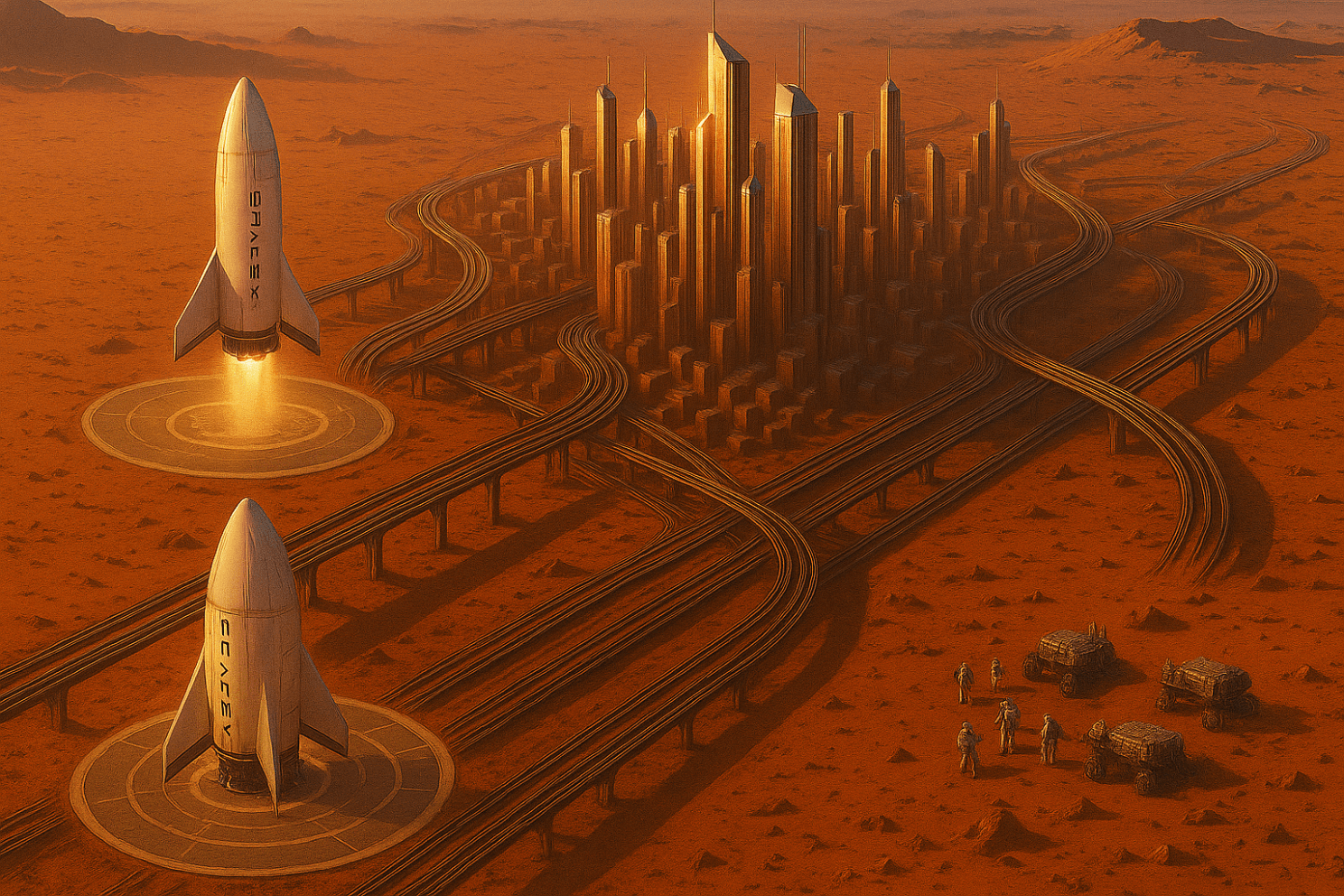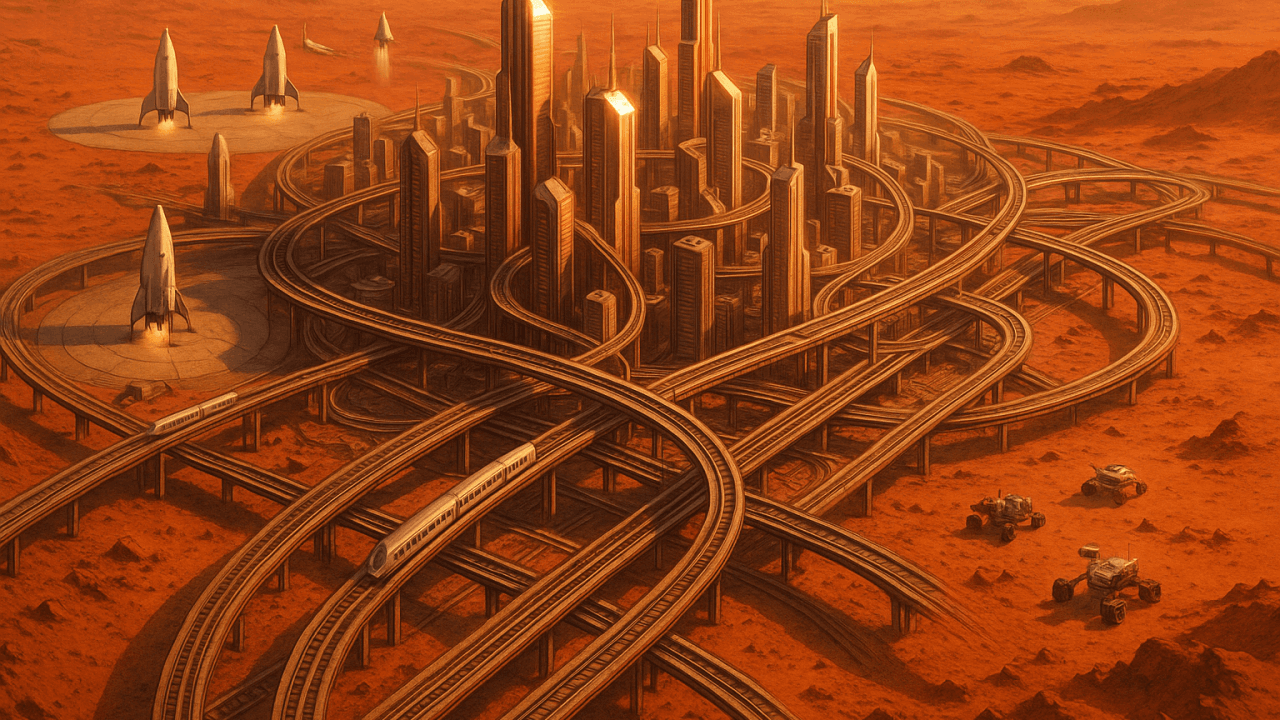While Musk’s ambitious timelines and groundbreaking endeavors with SpaceX have captured global attention, the silent, yet profound, contribution of AI in making this multi-planetary future a tangible possibility often goes unacknowledged.
AI in Space Exploration: Paving the Way to Mars
Before humanity can establish a permanent presence on Mars, the journey itself presents a myriad of challenges that AI is uniquely equipped to address. From optimizing mission planning to enabling autonomous spacecraft operations, AI is already revolutionizing how we explore the cosmos.
Autonomous Navigation and Operations
One of the most critical applications of AI in space exploration is autonomous navigation. Distant planets mean significant communication delays, making real-time human control impractical. NASA’s Perseverance rover on Mars exemplifies this, with 88% of its driving done autonomously . The rover uses AI to analyze terrain images, identify hazards, and navigate around obstacles on a landscape no human has ever seen. This capability is vital for future Mars missions, where rovers and other robotic explorers will need to operate independently for extended periods, making critical decisions without constant human intervention. Elon Musk’s vision for rapid and frequent Mars missions with Starship implicitly relies on highly automated systems, where AI can manage complex pre-flight checks, in-flight diagnostics, and autonomous landing sequences, significantly reducing the need for human oversight and accelerating mission turnaround times.
Data Analysis and Scientific Discovery
Space missions generate an immense volume of data, from geological surveys to atmospheric readings. AI-powered systems are indispensable for processing and interpreting this data, accelerating scientific discovery. AI can identify patterns, anomalies, and areas of interest that might be missed by human analysis, leading to new insights into planetary formation, potential resources, and signs of past or present life. For instance, AI is already helping scientists identify minerals within rocks studied by the Perseverance rover . As we prepare for Mars colonization, AI will be crucial for analyzing data from scouting missions, helping to select optimal landing sites, identify water ice deposits, and assess potential hazards for future human settlements.
Mission Planning and Optimization
The complexity of interplanetary missions demands meticulous planning. AI can optimize mission trajectories, resource allocation, and scheduling, accounting for countless variables such as fuel consumption, communication windows, and environmental conditions. AI algorithms can simulate various scenarios, identify potential risks, and propose the most efficient and safest pathways. This is particularly relevant for SpaceX’s ambitious plans to send large numbers of Starships to Mars, where AI could manage the intricate logistics of coordinating multiple launches, in-space refueling, and synchronized arrivals at the Red Planet.
Robotics and Remote Operations
AI is the brain behind the brawn of space robotics. From robotic arms on orbital stations to specialized drills on planetary surfaces, AI enables these machines to perform intricate tasks remotely or autonomously. Google DeepMind’s recent demonstration of a Vision-Language-Action model that runs locally on robots, allowing them to follow voice commands, showcases the future of human-robot collaboration in extreme environments . For Mars exploration, AI-driven robots will be essential for constructing initial habitats, setting up infrastructure, and performing dangerous tasks that are too risky for humans, all while being remotely supervised or operating independently.

AI and the Genesis of a Martian Civilization
The ultimate goal of Mars exploration, as articulated by Elon Musk, is to make humanity a multi-planetary species, ensuring the long-term survival and expansion of consciousness. Building a self-sustaining colony on Mars is an undertaking of unprecedented scale and complexity, where AI will transition from a supporting tool to an indispensable partner in the very genesis of a new civilization.
Habitat Construction and Resource Utilization
The Martian environment is harsh and unforgiving. AI-powered robotics will be crucial for the automated construction of habitats, using local resources like Martian regolith through advanced 3D printing techniques. AI systems can analyze the structural integrity of materials, optimize construction schedules, and monitor the build process for anomalies. Furthermore, AI will be vital for In-Site Resource Utilization (ISRU), identifying, extracting, and processing water ice, atmospheric gases, and minerals to produce propellants, breathable air, and building materials. An AI-powered greenhouse, for example, could monitor plant health, recycle water, and regulate CO₂ levels, ensuring food security for settlers . This autonomous resource management is key to minimizing reliance on Earth and achieving true self-sufficiency.
Life Support Systems and Environmental Control
Maintaining a habitable environment within Martian colonies will require sophisticated and highly reliable life support systems. AI can continuously monitor atmospheric composition, temperature, humidity, and radiation levels, making real-time adjustments to maintain optimal conditions. These AI systems can predict and prevent failures, diagnose issues, and even initiate self-repair protocols, ensuring the safety and well-being of the colonists. Given the extreme isolation and the critical nature of these systems, AI’s ability to operate autonomously and with high precision will be paramount.
Agriculture and Food Production
Sustaining a human population on Mars necessitates efficient and localized food production. AI can revolutionize Martian agriculture through vertical farming and hydroponics, optimizing growth conditions for various crops. AI algorithms can control light cycles, nutrient delivery, and water recycling, maximizing yields in controlled environments. This level of precision agriculture, managed by AI, will be essential for providing a diverse and nutritious diet for the colonists, reducing the need for resupply missions from Earth.
Medical and Psychological Support
Far from Earth, Martian colonists will face unique medical and psychological challenges. AI can serve as a constant medical assistant, monitoring vital signs, diagnosing illnesses, and even assisting with surgical procedures under remote human supervision. AI-powered psychological support systems can detect early signs of stress or isolation, offering personalized interventions and facilitating communication with Earth-based professionals. Elon Musk’s Neuralink, though currently focused on terrestrial applications, hints at a future where brain-computer interfaces could enhance human capabilities and potentially mitigate some of the psychological strains of deep-space living, allowing for more seamless interaction with AI systems and even remote control of robotic assets.
Governance and Social Systems
As Martian colonies grow, so too will the complexity of their social and governance structures. While humans will ultimately govern, AI can provide invaluable support in managing resources, optimizing logistics, and even assisting in conflict resolution by analyzing data and proposing equitable solutions. AI could help manage energy grids, waste management, and transportation networks within the colony, ensuring efficient operation of all critical infrastructure. This would allow human colonists to focus on scientific research, exploration, and the development of Martian culture.

AI – The Architect of Our Martian Future
The journey to Mars and the establishment of sustainable human colonies represent humanity’s next great leap. It is a monumental undertaking that demands unprecedented levels of innovation, efficiency, and resilience. Artificial Intelligence, far from being a mere tool, is emerging as the architect of this future, enabling us to overcome challenges that once seemed insurmountable.
As we look to the stars, it is clear that AI will be an indispensable partner in realizing our Martian dream, securing humanity’s future among the cosmos.


